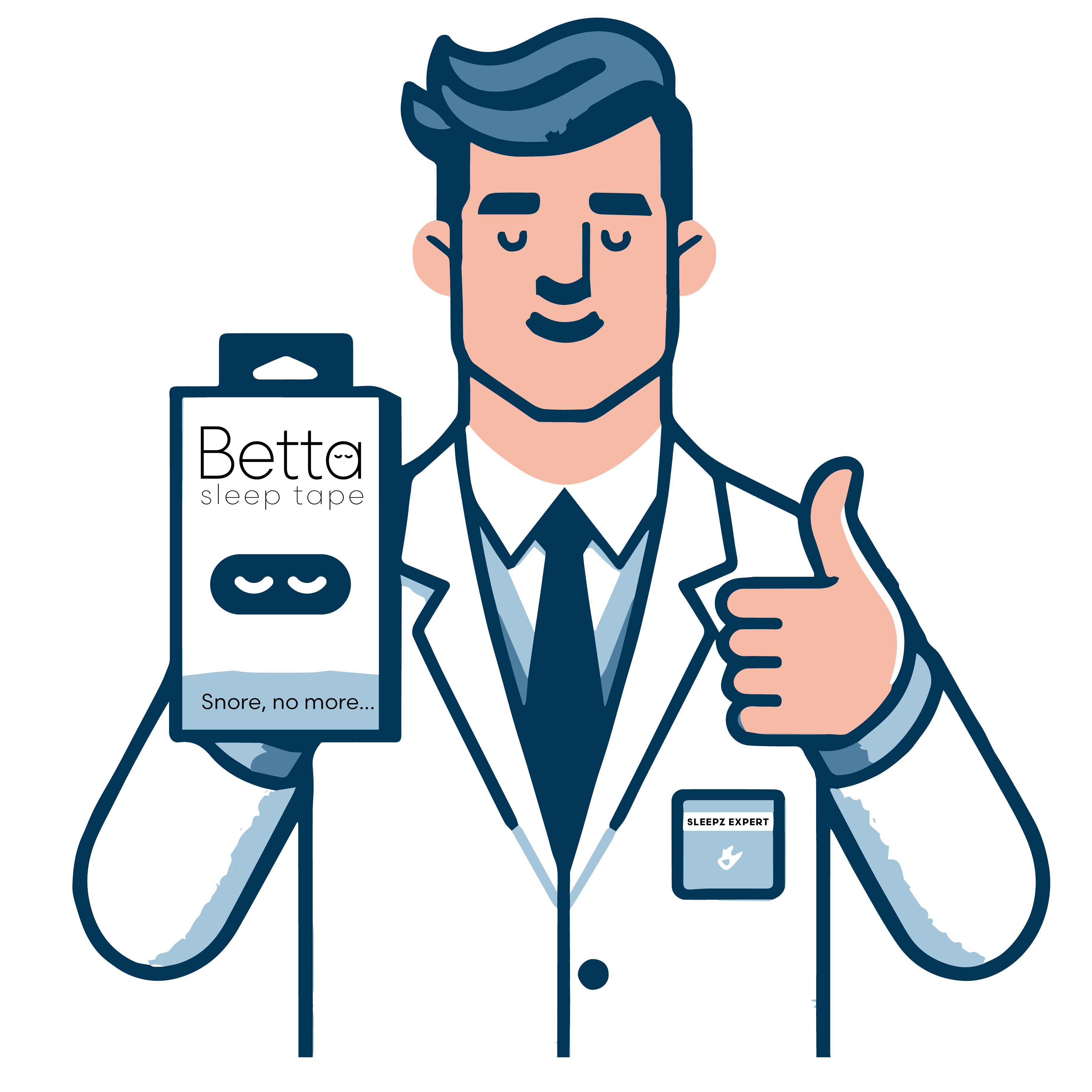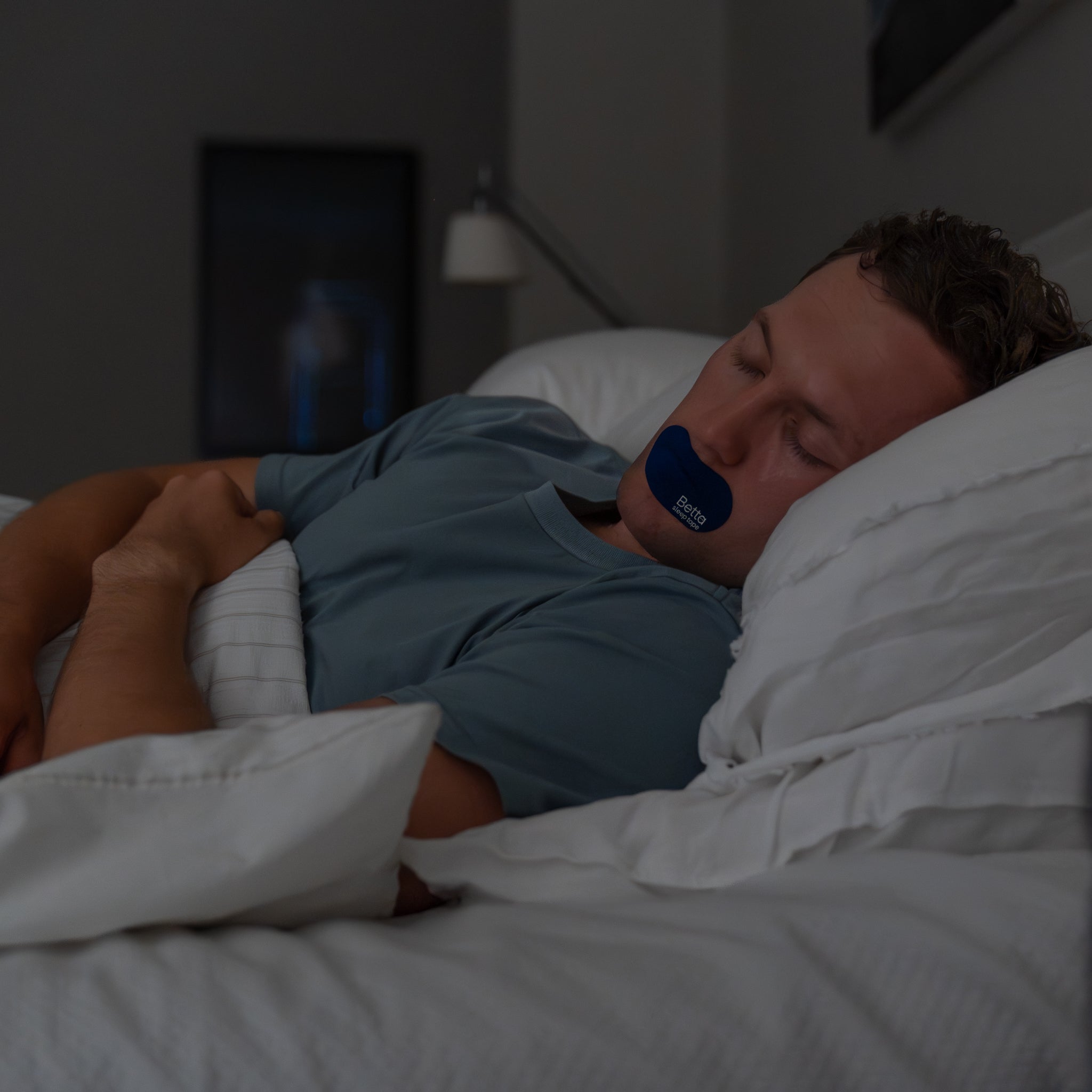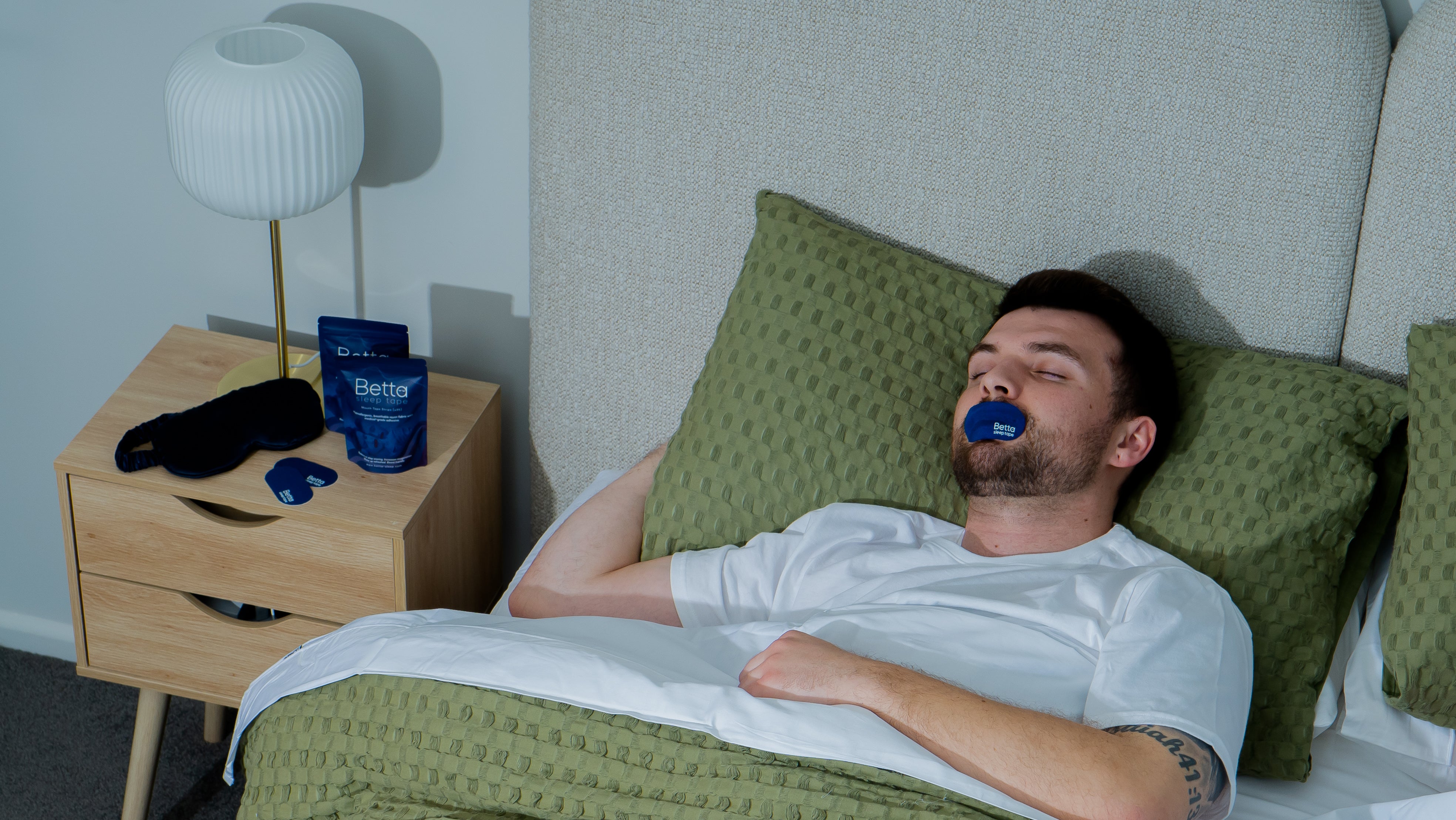The What
Mouth Tape Unveiled
Let’s start with the basics. Mouth tape is a simple but effective tool designed to keep your mouth closed while you sleep. It promotes natural nasal breathing — unlocking a range of health benefits.
Benefits of Nasal Breathing:
“Why tape my mouth shut?” you might ask. Because many of us unconsciously mouth-breathe during sleep — a habit linked to a wide range of health issues.
The Problem Mouth Tape Solves
Nasal breathing filters, humidifies, and conditions air before it reaches the lungs — improving oxygen and CO₂ exchange. Mouth breathing bypasses this, reducing energy and overall vitality.
Mouth breathing is a major cause of snoring and contributes to sleep apnea — a disorder marked by interrupted breathing during sleep.
For CPAP users, mouth breathing allows air to escape, weakening treatment and making sleep apnea harder to manage.
The Benefits of Nose Breathing

Improved Oxygenation
Nasal breathing enhances oxygen intake,
supporting energy, recovery, and cognitive function.

Cardiovascular Health
Proper nasal breathing helps regulate blood pressure and supports long-term heart health.

Mental Clarity
A well-oxygenated brain improves focus, memory, and decision-making.
Snore-Free Sleep
Keeping your mouth closed helps eliminate snoring, improving sleep for both you and your partner.

CPAP Compatibility
Nasal breathing enhances the effectiveness of CPAP machines, ensuring proper pressure and airway support.

IMMUNE SUPPORT
Nasal breathing filters out dust, allergens, and pathogens through the nose’s mucus and cilia, reducing the burden on your immune system and helping prevent illness.

